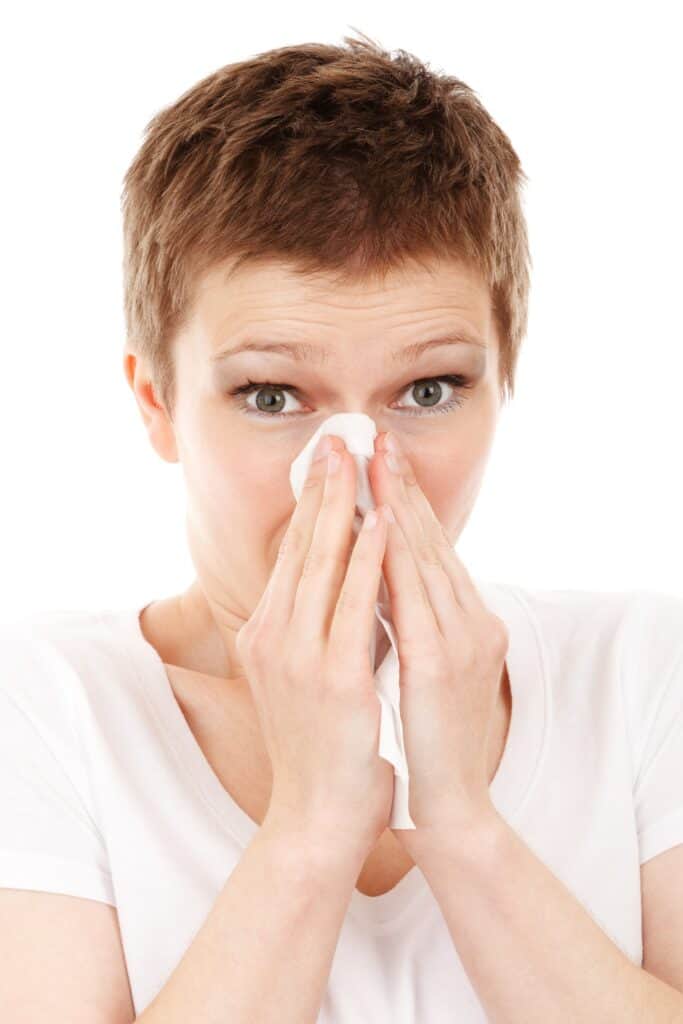Mobile Allergy and Immunology Specialists
At Heart and Health Medical Mobile Unit, Allergy and Immunology Specialists have been specially trained to diagnose, treat and manage all illnesses and diseases related to food and environmental allergies and asthma for each member of your family. In the United States, becoming an allergist / immunologist requires at least nine additional years of training beyond a bachelor’s degree. Dr. Louis Guida has had 12.5 additional years of training after receiving his bachelor’s degree and has had over 30 years in practice specializing in allergy, immunology and asthma here on Long Island.
Asthma
Asthma is a chronic disease involving swelling or inflammation in the airways of the lungs which make it difficult to breathe. Patients with asthma have airways that are often or always inflamed. When asthma is triggered it becomes difficult for air to move in and out of the lungs. Asthma symptoms include coughing, wheezing, shortness of breath and/or chest tightness.
Asthma triggers can vary from patient to patient. A trigger is a sensitivity specific to the patient that causes the airways to become inflamed. Common asthma triggers, according to the Asthma and Allergy Foundation (https://www.aafa.org/asthma.aspx), are pollen, chemicals, extreme weather changes, smoke, dust mites, stress and exercise
There are many types of asthma and reasons for why asthma develops. Patients with a family history of allergies or asthma are more prone to developing asthma.
For some asthma sufferers, these symptoms can be closely related to physical activity and many otherwise healthy patients can develop asthma symptoms only when exercising. This is called Exercise-Induced Asthma (EIA). Staying active is important in maintaining a healthy lifestyle and asthma shouldn’t keep you on the sidelines. Our top allergist can help you develop a management plan to keep your symptoms under control before, during and after physical activity.
Occupational Asthma is caused by inhaling fumes, gases, dust or other potentially harmful substances while at work.
Childhood Asthma impacts millions of children and their families. In fact, the majority of children who develop asthma do so before the age of five.
There is no cure for asthma, but once it is properly diagnosed and a treatment plan is in place you will be able to manage your condition and your quality of life. An allergist is best qualified physician in diagnosing and treating asthma. With the help of your allergist, you can take control of your condition and partake in all daily activities.

Allergies
Allergies are among the most common medical conditions worldwide. Allergy symptoms range from the discomfort of watery eyes and sneezing to putting you at risk for a life-threatening reaction called anaphylaxis (an-a-fi-LAK-sis).
An allergic reaction begins in the immune system. Our immune system protects us from foreign organisms that can cause illness or harm to our bodies. If you have an allergy, your immune system mistakes an otherwise harmless organism or substance as an invader. This substance is then considered an allergen and the immune system reacts to the allergen by producing antibodies, called Immunoglobulin E (IgE).
An allergic reaction typically triggers symptoms in the nose, lungs, throat, sinuses, ears, lining of the stomach and/or on the skin. For some people allergies can also trigger symptoms of asthma, and in the most serious cases, the life-threatening reaction of anaphylaxis can occur. Anaphylaxis is a serious allergic response that often involves swelling, hives, lowered blood pressure, swollen throat, wheezing, passing out and in severe cases, death. https://www.aaaai.org/conditions-and-treatments/conditions-dictionary/anaphylaxis
The most common allergens according to the Asthma and Allergy Foundation include: (https://www.aafa.org/allergies.aspx)

Urticaria
Urticaria, or hives, involve red, itchy, swollen areas of the skin that range in size and can appear anywhere on the body. They often appear suddenly and may be the result of an allergic reaction.
Some people have chronic hives that occur almost daily for months or, in some cases, years. Treatment with oral medications, such as antihistamines, is frequently successful, but in severe cases, steroids may be needed.
In addition to allergic reactions to medications, foods, or other substances, hives may be triggered by viral infections, temperature extremes, water, sun, and physical exercise.
Sinuses
Your sinuses are cavities in your head that are located in the front of the face in the forehead (frontal sinuses), between the eyes (ethmoid and sphenoid sinuses) and in the cheekbones (maxillary sinuses). These cavities lighten the weight of the skull. They also filter and moisten the air you breathe and give resonance to your voice. The sinuses are lined with very fine hair-like cells called cilia. The cilia help drain mucus through the sinus passages into the nose.
Rhinosinusitis, commonly referred to as sinusitis occurs when the sinus openings become blocked or too much mucus builds up causing one or more of the cavities to become inflamed. Allergic rhinitis and allergic asthma can often be associated with chronic sinusitis.
Allergy Shots?
Allergen immunotherapy, also known as allergy shots, is a form of long-term treatment that decreases symptoms for many patients with allergies.
Allergy shots decrease sensitivity to allergens and often leads to lasting relief of allergy symptoms even after treatment has stopped. This makes it a cost-effective, beneficial treatment approach for many patients.

Who Can Benefit From Allergy Shots?
Both children and adults can receive allergy shots, although it is not typically recommended for children under the age of five. This is because of the difficulties younger children may have in cooperating with the program and in articulating any adverse symptoms they may be experiencing. When considering allergy shots for an older adult, medical conditions, such as cardiac disease, should be taken into consideration and discussed with your allergist first.
You and your allergist / immunologist should base your decision regarding allergy shots on:
- Length of allergy season and severity of your symptoms
- How well medications and/or environmental controls are helping your allergy symptoms
- Your desire to avoid long-term medication use
- Time available for treatment (allergy shots requires a significant commitment)
- Cost, which may vary depending on region and insurance coverage
**Allergy shots are not used to treat food allergies. The best option for people with food allergies is to strictly avoid that food**
How Do Allergy Shots Work?
Allergy shots work like a vaccine. Your body responds to the injected amounts of a particular allergen, given in gradually increasing doses, by developing immunity or tolerance to the allergen.
There are two phases:
- Build-up phase. This involves receiving injections with increasing amounts of the allergens one to two times per week. The length of this phase depends upon how often the injections are received, but generally ranges from three to six months.
- Maintenance phase. This begins once the effective dose is reached. The effective maintenance dose depends on your level of allergen sensitivity and your body’s response to the build-up phase. During the maintenance phase, there will be longer periods of time between treatments, ranging from two to four weeks. Your allergist will decide what range is best for you.
You may notice a decrease in symptoms during the build-up phase, but it may take as long as 12 months on the maintenance dose to notice an improvement. If allergy shots are successful, maintenance treatment is generally continued for three to five years. Any decision to stop allergy shots should be discussed with your allergist / immunologist.
How Effective Are Allergy Shots?
Allergy shots have been shown to decrease symptoms of many allergies. It can prevent the development of new allergies and in children it can prevent the progression of allergic diseases. The effectiveness of allergy shots is related to the length of the treatment program as well as the dose of the allergen. Some people experience lasting relief from allergy symptoms, while others may relapse after discontinuing allergy shots. If you have not seen improvement after a year of maintenance therapy, your allergist will work with you to discuss treatment options.
Failure to respond to allergy shots may be due to several factors:
- Inadequate dose of allergen in the allergy vaccine
- Missing allergens not identified during the allergy evaluation
- High levels of allergen in the environment
• Significant exposure to non-allergic triggers, such as tobacco smoke
Where Should Allergy Shots Be Given?
This type of treatment should be supervised by a specialized physician in a facility equipped with proper staff and equipment to identify and treat adverse reactions to allergy injections. Ideally, immunotherapy should be given in your allergist’s office. If this is not possible, your allergist / immunologist should provide the supervising physician with comprehensive instructions about your allergy shot treatments.
Information obtained from American Academy of Allergy Asthma Immunology website (https://www.aaaai.org)
